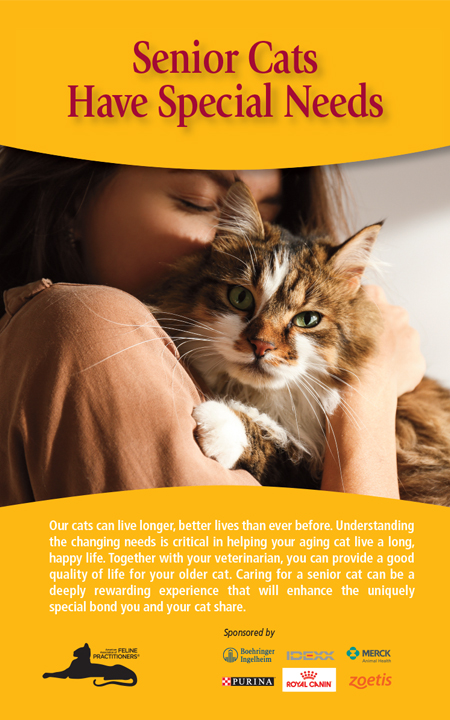Yibai Insights
Explore the latest trends, news, and insights from around the world.
Aging Gracefully: Keeping Your Senior Pet Happy and Healthy
Discover top tips for ensuring your senior pet stays happy and healthy as they age. Your furry friend deserves the best care!
Top 10 Tips for Caring for Your Senior Pet
Caring for your senior pet requires a more attentive and thoughtful approach. As pets age, they may face various health challenges, including arthritis, dental issues, and diminished eyesight. To ensure your furry friend enjoys their golden years, consider these top tips. First, take your pet for regular veterinary check-ups; these visits can help catch any potential health problems early on. Additionally, the American Veterinary Medical Association emphasizes the importance of a balanced diet that meets the specific nutritional needs of senior pets.
Another aspect of caring for senior pets is providing them with a comfortable living environment. This includes ensuring they have a cozy bed that is easy for them to get in and out of, as well as minimizing stairs or high jumps they might struggle with. Hydration is also critical; always keep fresh water accessible. Lastly, remember to maintain an active routine without overexerting them—gentle walks and play can help keep their spirits high. For more resources on senior pet care, visit The Humane Society.

Understanding Common Health Issues in Aging Pets
Aging pets, much like aging humans, experience a variety of health issues that can significantly affect their quality of life. As dogs and cats age, they may become more susceptible to diseases such as arthritis, which leads to pain and mobility challenges, and kidney disease, which can present a range of symptoms from increased thirst to weight loss. Regular veterinary check-ups for early detection of these conditions can make a substantial difference in management and treatment, ensuring your beloved pet maintains a comfortable and happy life.
In addition to physical ailments, aging pets may also suffer from cognitive dysfunction, similar to dementia in humans. This can manifest as confusion, changes in sleep patterns, and altered behavior. Owners might notice their pets becoming disoriented in familiar surroundings or vocalizing more frequently, indicating discomfort. To address these cognitive health changes, incorporating brain-stimulating activities and a healthy diet can play a crucial role. Understanding and recognizing these common health issues can empower pet owners to take proactive measures in their furry friends' twilight years.
How to Create a Comfortable Environment for Your Senior Dog/Cat
Creating a comfortable environment for your senior dog or cat involves several key considerations to ensure their well-being and happiness. First, assess their mobility needs; older pets often struggle with stairs or slippery floors. Consider non-slip mats or ramps to help them navigate your home safely. Additionally, provide a cozy bedding area in a quiet, low-traffic space where they can feel secure. Use pet-friendly heating pads or blankets to offer warmth during colder months, as older pets may have difficulty regulating their body temperature.
In addition to physical comfort, it’s essential to create an emotionally supportive environment for your senior pet. Spend time engaging in gentle play or short walks to stimulate their minds while respecting their limits. Maintain a routine for feeding and bathroom breaks, as stability can help reduce anxiety. To further enhance their comfort, consider selecting quality food that suits their age and health conditions; consulting a vet about specific dietary needs is always advisable. Lastly, keep their environment free from clutter and hazards, allowing them to move about safely and freely, which can significantly improve their quality of life. For more tips on caring for senior pets, visit A Paw the Tetic.